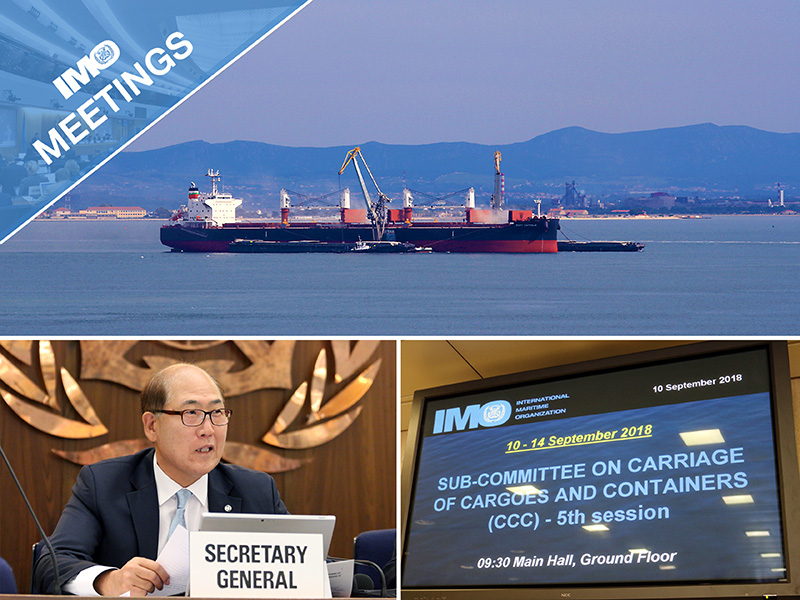The classification of certain potentially hazardous cargoes is on the agenda of the IMO’s Sub-Committee on Carriage of Cargoes and Containers (CCC 5, 10-14 September). The Sub-Committee will consider a newly identified phenomenon which affects some bauxite cargoes, known as dynamic separation, which can cause instability of the cargo and ship.
Also up for discussion is carriage of ammonium-nitrate based fertilizer. Potential problems have been identified following accidents involving the MV Purple Beach (2015) and MV Cheshire (2017). The recommendations arising from the investigation into the MV Cheshire will be presented to the Sub-Committee. Proposals to amend the relevant schedules will be considered, for future inclusion in the International Maritime Solid Bulk Cargoes (IMSBC) Code, which is the industry rulebook on how to deal with such cargoes.
On other matters, the Sub-Committee is expected to consider matters relating to further development of the International Code of Safety for Ships using Gases or other Low-flashpoint Fuels (IGF Code), including the development of draft technical provisions for ships using methyl/ethyl alcohol as fuel and draft requirements for fuel cells. Also under development are draft interim guidelines on the application of high manganese austenitic steel for use in cryogenic applications such as cargo tanks, fuel tanks and piping of LNG carriers and LNG-fuelled ships. The Sub-Committee will also discuss developing draft amendments to the Code of Safe Practice for Cargo Stowage and Securing (CSS Code) related to weather-dependent lashing, aimed at ensuring the highest level of cargo securing, taking into account expected weather and other factors.
The meeting was opened by IMO Secretary-General Kitack Lim and is being chaired by Mr. Xie Hui of China. (Photos here).
